The Dell XPS 15 9550 Review: Infinity Edge Lineup Expands
by Brett Howse on March 4, 2016 8:00 AM ESTCompute
The XPS 15 is not marketed as a gaming laptop, and while any gaming laptop can pull double duty, people buying the XPS 15 may not be interested in gaming at all. The GPU can still be leveraged for certain workloads such as photo and video editing. The parallel computing power of the GPU makes it a great choice for these types of tasks.
CompuBench
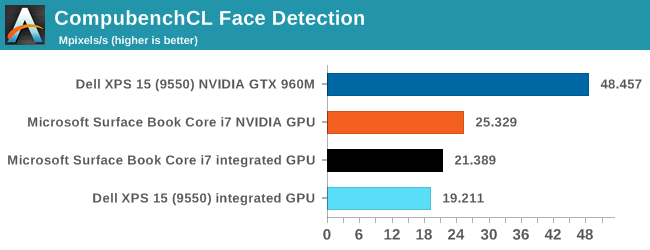
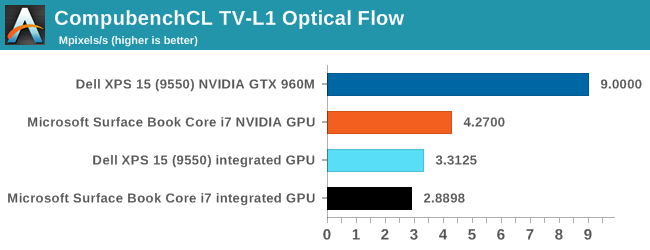
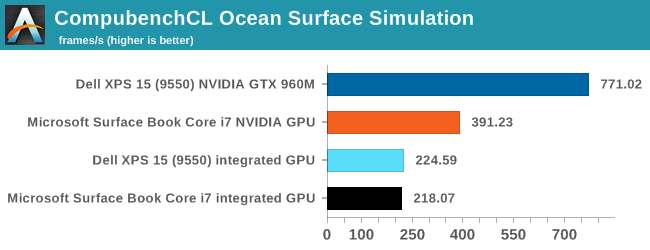
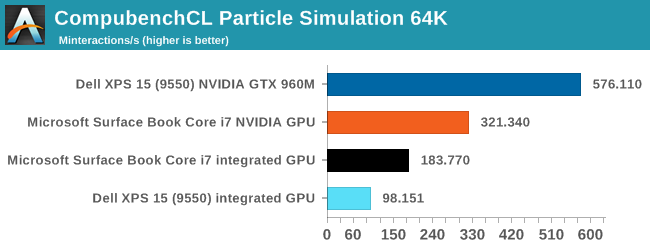
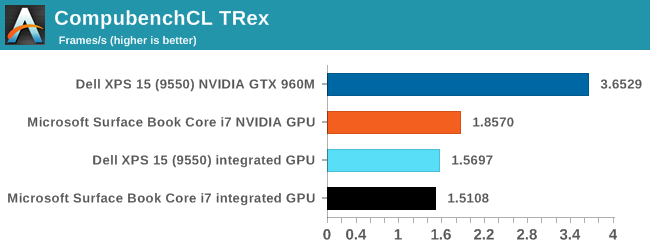
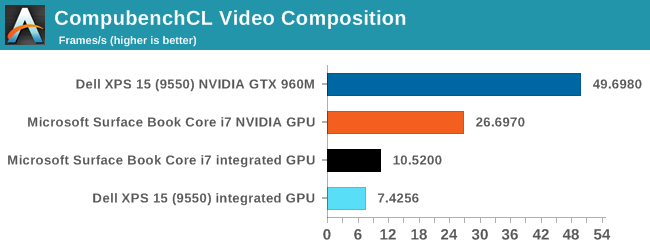
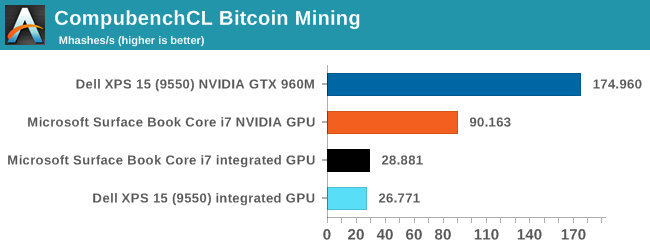
The only other device we’ve tested with Kishonti’s CompuBench is the dGPU version of the Surface Book. I felt it would be a nice comparison to see just how much more performance the GTX 960M would give in compute tasks. Compared to just integrated graphics, there is a big jump in performance from both of the discrete cards, but the GTX 960M is roughly double the performance of the GT 940M in the Surface Book. If you need compute power, you get a lot more in the XPS 15 with the quad-core processor and much more powerful GPU.
Storage Performance
Dell does offer the XPS 15 with a mechanical hard drive as the baseline option, but once you step up a couple of tiers it can be outfitted with a PCIe based SSD, and in the case of our review unit it is the Samsung PM951. This has become incredibly popular it seems, since it lets companies check the box beside PCIe on storage, but unfortunately it is a TLC based drive so write speeds aren't as high as what we've seen MLC-based PCIe drives do. Clearly Samsung is aggressive with the pricing on this drive since it is in pretty much every device we’ve seen that has PCIe storage.
Recently PCMark 8 updated their testing for storage to better differentiate drives with NVMe storage. As such, the existing scores are no longer comparable with those from the new suite. The XPS 15 scored 5036 in the new test, but we'll need more devices tested in order to have something to compare it to.
Despite the TLC NAND, Dell shipped the 512 GB version of the XPS 15, so it has enough NAND dies to help the write speeds through parallel work, keeping even this slower TLC drive performant over short bursts. I actually expected read speeds to be a bit higher as well but over 800 MB/s is still faster than what SATA drives can do.


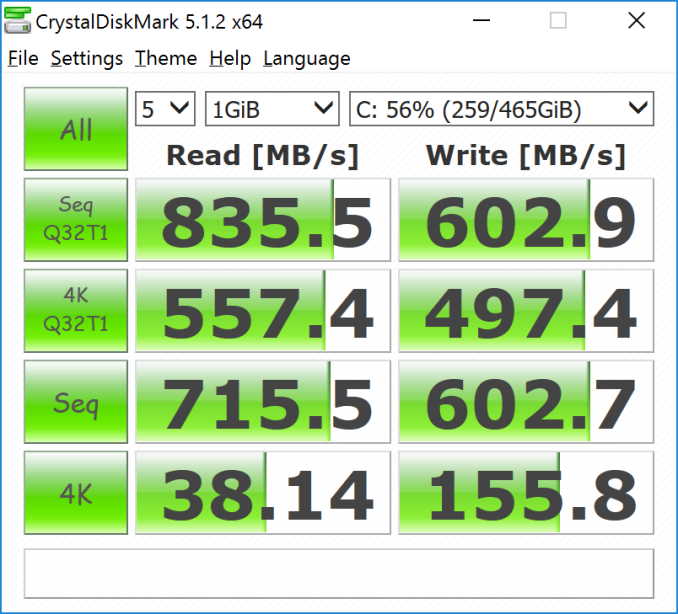








152 Comments
View All Comments
dsraa - Friday, March 4, 2016 - link
$999 for a i3 system??? yikes......I''d rather forget the screen, and buy an i7 system similar for HP at the same price...Meteor2 - Saturday, March 5, 2016 - link
I spend a lot more time looking at he screen than the processorWhisperingEye - Sunday, March 6, 2016 - link
lol, what? I look at the paint on my walls, but it doesn't keep my roof over my head.royalcrown - Friday, March 4, 2016 - link
Yeah, showcase infinity edge in the article by leading with a 4:3 pic....derp !Zak - Friday, March 4, 2016 - link
Would it be possible to get better quality photos in reviews? Amateurish, noisy, blurry, smartphone photos with heavy barrel distortion and bad white balance really are inadequate,Brett Howse - Monday, March 7, 2016 - link
I've mentioned this a couple of times, but I'm going to try and work on better photos for the next review. Photography is not something I'm strong at so it will take some work and practice.prime2515103 - Friday, March 4, 2016 - link
When are they going to come out with a 17" or 18" laptop with a 150Wh battery?nerd1 - Friday, March 4, 2016 - link
Won't happen. Most airlines now have very strict battery capacity regulations (<100Wh)Apple managed to fill 95Wh battery in their MBP 15" already.
wallstreetcrapola - Saturday, March 5, 2016 - link
The worst laptop I ever had as far as display completely going dark/switching off for no apparent reasons and it happens everyday. Infact it blanked off 5 times before I finished this commentary. I have the Microsoft version of the XPS15. Drivers updates automatically so I am not sure what it is and a user should NEVER have to "figure" it out! The notebook is oin no way over heated as I write this.Ogewo - Saturday, March 5, 2016 - link
In this review:With HDD
1.78 kg / 3.9 lbs
With SSD
2 kg / 4.4 lbs
From Dell:
3.9lbs (1.78kg) with 56Whr battery, SSD and non-touch display;
4.4lbs (2kg) with 84Whr battery, SSD and touch display